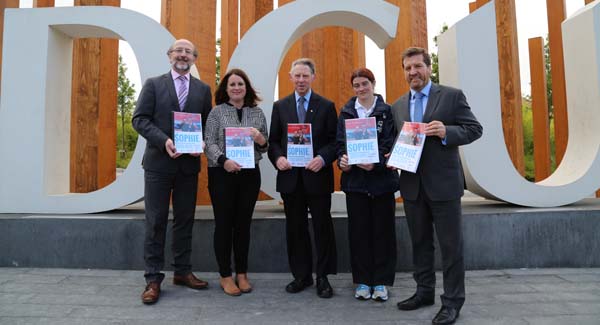People who take part in Special Olympics activities find it improves their social skills and emotional well-being.
A DCU study involving people with intellectual disabilities compared those who took part in Special Olympics, with those who did not.
It found increased levels of depression among those who did not take part.
However, the research found many were not able to participate because of a lack of volunteers to give them a lift to training.

Dr Mary Rose Sweeney, Senior Lecturer at DCU’s School of Nursing and Human Sciences and Principal Investigator of the study, said: “The research provides us with novel quantitative and qualitative information, giving us a better understanding of the benefits, impacts and experiences of taking part in SO programmes for athletes and their carers.
“It will also provide useful insights into non-involvement by families of individuals with intellectual disabilities.”
Special Olympics Athlete Aisling Beacom said: “I hope the report will help people understand why it is good to be in the Special Olympics programmes.”
Up to 292 participants took part in the research of which there were 146 primary participants – 101 athletes and 45 non-athletes – and 146 principal family carers.
The study also found that reliance on care-givers, very often elderly parents and a lack of transport options meant some people with intellectual disabilities could not access Special Olympics programmes.
It also highlighted that of the sample group, 75% of respondents were overweight or obese. It advised that health-care professionals working with people with intellectual disabilities should monitor the issue of overweight and obesity in people with intellectual disabilities.


